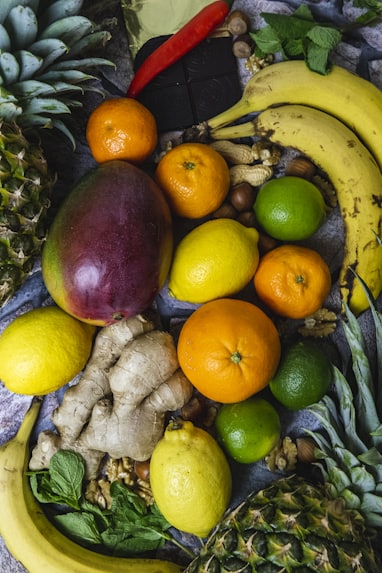What to know about sugar in fruit
With so many fad diets and sources of nutrition advice, it can be difficult to separate fact from fiction — especially when it comes to sugar. However, it is worth noting that the body metabolizes fruit sugar differently than processed or added sugars.
All fruit contains some natural sugar. Very sweet fruits, including mangoes and watermelons, have relatively high sugar content. Generally, however, fruit tends to contain less sugar than sweetened foods.
Almost everyone, including people with diabetes, could benefit from eating more fruits. This is due to the combination of vitamins, minerals, fiber, phytochemicals, and water it provides.
Fruit contains 2 types of sugar: fructose and glucose. The proportions of each vary, but most fruits are about half glucose and half fructose. Glucose raises blood sugar, so the body must use insulin to metabolize it. Fructose does not raise blood sugar. Instead, the liver breaks it down.
In the sections below, we look at how fruit sugars compare with other sugars, the risks associated with sugar intake, and the benefits of eating fruit.
Fruit sugars vs. other sugars
The sugars that manufacturers most commonly used in foods include:
- corn syrup, which is usually 100% glucose
- fructose, which is sugar from fruit
- galactose, which forms the milk sugar lactose when combined with glucose
- high fructose corn syrup, which combines refined fructose and glucose but with a higher percentage of fructose
- maltose, which is from two glucose units
- sucrose, or white or table sugar, which is equal parts fructose and glucose
These sugars differ from fruit sugar because they undergo processing and manufacturers tend to overuse them as additives in food and other products. Our bodies also metabolize these sugars more quickly.
For example, sucrose can make coffee sweeter, and high fructose corn syrup is a common additive in many processed products, such as soda, fruit snacks and bars, and more.
Potential risks
Research consistently linked refined and added fructose, both of which are present in sugar and sweetened products, to a higher risk of health conditions such as diabetes and heart disease.
It is worth reiterating, however, that this research looked exclusively at fructose in its processed form as an additive in sweetened foods, not at fructose from whole fruits. Although some fad and extreme diets aim to reduce or eliminate fruit from the diet, for most people, there is no evidence to suggest that fruit is harmful.
A 2014 study comparing fructose with glucose reviewed 20 controlled feeding trials. Although pooled analyses suggested that added fructose could raise cholesterol, uric acid, and triglycerides, it did not have a more negative effect on lipid profile, markers for nonalcoholic fatty liver disease, or insulin.
People with diabetes can also safely consume fruit. In many cases, sweet fruit can satisfy a craving for something else. The fruit has far less sugar than most sweet snacks, which can mean that a person consumes fewer calories and less sugar while also obtaining valuable nutrients.
Things to be aware of
Whole fruit is always a better choice than packaged or processed fruits.
For example, manufacturers tend to heavily sweeten and highly process fruit juices. Flavored juices that they market to children often contain large amounts of added sugars. These juices are not a substitute for whole fruit, and they may significantly increase a person’s sugar consumption.
People who consume canned fruits should check the label, as some canned fruits contain sweeteners or other flavoring agents that can greatly increase their sugar content.
A very high intake of fruit, as with any other food, may cause a person to consume too many calories, which may increase their risk of obesity. Overeating fruit, however, is difficult. To exceed a 2,000-calorie-per-day diet by only eating fruit, a person would have to eat approximately 18 bananas, 15 apples, or 44 kiwifruits each day. According to the Centers for Disease Control and Prevention (CDC), however, most people eat fewer than five servings of fruit per day.
Some of the only people who should avpid fruit are those with rare conditions that affect the way their bodies absorb or metabolize fructose. People with specific fruit allergies should also avoid some types of fruit. A condition called fructose malabsorption, for instance, can cause fructose to ferment in the colon, causing stomach pain and diarrhea. Also, a rare genetic disorder called hereditary fructose intolerance interferes with the liver’s ability to metabolize fruit, which may require a person to adopt a diet without fructose.
Pregnant women in their second trimester should try to avoid eating more than four servings of fruit per day, especially of fruits that are high on the glycemic index. They may also wish to avoid tropical fruits, as these may increase the risk of gestational diabetes.
Benefits of eating fruit
The benefits of eating fruit far outweigh any purported or hypothetical risks. The benefits include:
Increased fiber intake: Consuming fiber can help a person feel fuller for longer, reduce food cravings, nourish healthful gut bacteria, and support healthy weight loss. Consuming fiber may also help a person maintain more consistent blood glucose, which is especially important for people with diabetes.
Lower sugar consumption: People who replace sweet snacks with fruit may eat less sugar and fewer calories.
Better overall health: Fruit consumption is linked to a wide range of health benefits. Fruit and vegetable consumption, according to one 2017 analysis, reduces the overall risk of death. Consuming fruits and vegetables also lowers the risk of a range of health conditions, including heart disease and cancer.
Lower risk of obesity: People who consume fruit are less likely to develop obesity and the health issues associated with it.
Fruit consumption is so beneficial to health that a 2019 systematic review concluded that the current recommendations might actually underestimate the benefits of eating fruits and vegetables.
Summary
Nowadays, it can be difficult to separate nutritional facts from fiction, especially for people who are eager to lose weight, live longer, and feel better.
People should talk to a doctor or dietitian before making any dramatic changes to their diet. However, for most people, it is safe and recommended to eat several servings of whole fruit per day. People with diabetes can also enjoy fruit regularly, though low glycemic and high fiber fruits are best.
With the multiple benefits of fruits, it might still be a hassle to buy a variety of fruits due to their short shelf life and to prepare them for consumption. Smooder aims to bring convenience to you by providing Smooder fruit cups either to your office pantry or your home, empowering your healthy habits starting today. Experience the whole new level of convenience of drinking healthy in conjunction with using our proprietary Smooder machine. Book your free demo today!












